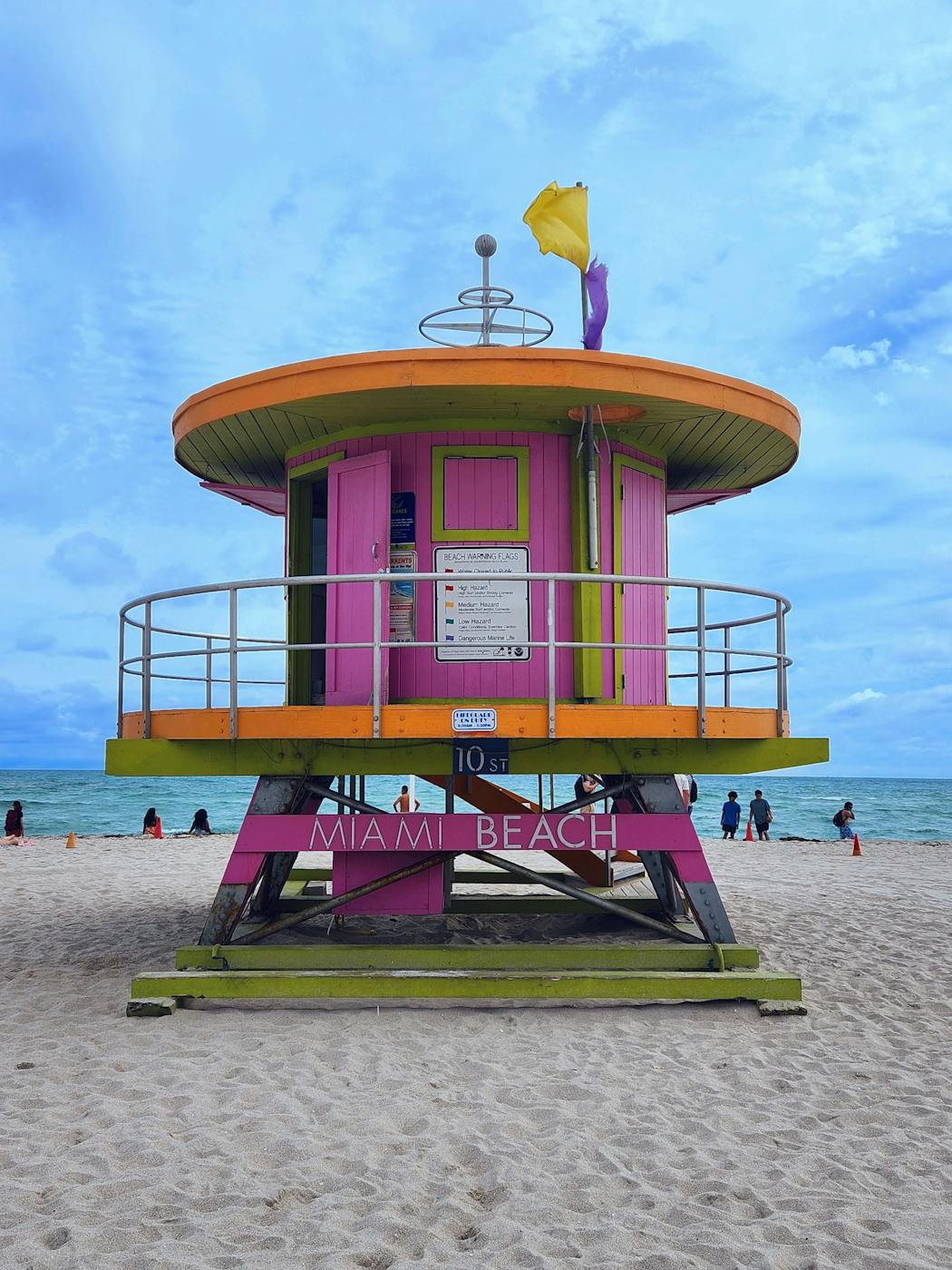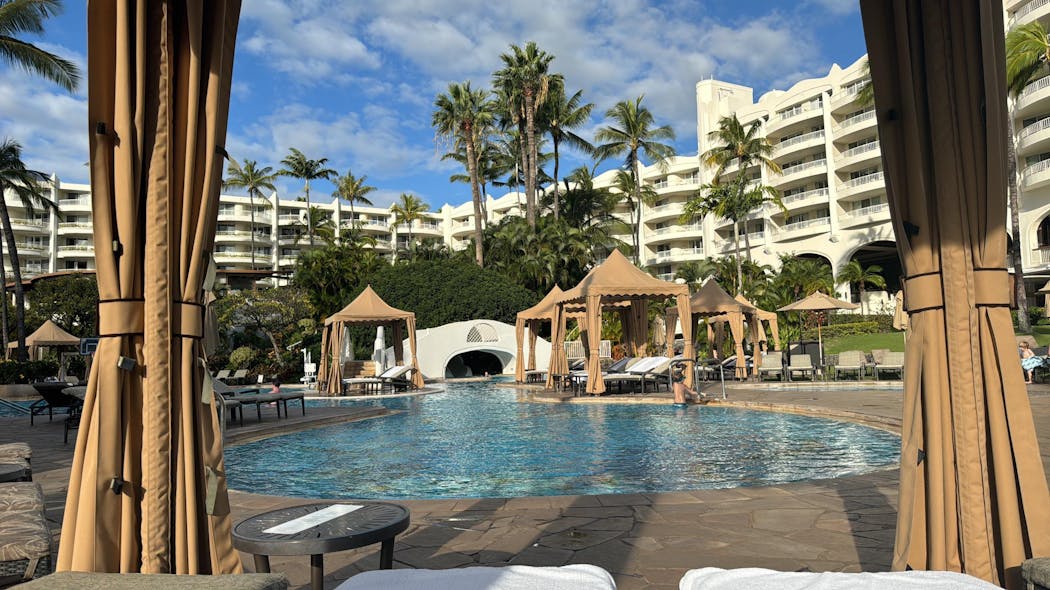If you're a budget traveler like me, you might gravitate to hostels, Airbnbs and affordable ecolodges. Sure, you might daydream about lolling poolside at a full-service tropical resort, but you know you don't want to pay for it.
Services like Dayuse and ResortPass offer a win-win solution — but not many travelers know about them.
With these website/apps, you can visit a broad range of hotels, spas and resorts for just a few hours to a full day, without paying for an overnight stay. Participating hotels and resorts don't openly tout the services, but they don't seem to mind taking the extra guest revenue during the slow times of day otherwise focused on checkouts and housekeeping.
On two Tuesdays this winter, I tried Dayuse on a long layover in Miami and ResortPass during a getaway day on Maui. Here's how it went.
Dayuse: Whirlwind day in Miami Beach
My family of three had a grueling trip home from Buenos Aires in November, with an eight-hour flight arriving in Miami at 5 a.m., followed by a 12-hour layover. I knew I would be sleepless with my 23-pound infant daughter on my lap. But I always strive to take a "buffer day" after big trips: one more day off before going back to work. So I decided to make something of our day in Miami.
First, I extended our layover to 16 hours, with a 9:05 p.m. departure to Minneapolis. This required a phone call to American Airlines. Then I turned to Dayuse.com and Miami Beach.
Dayuse lets you reserve daytime hours at hotels around the country, whether you want to sleep, work, use the pool or whatever else you're up to. Among the app's boutique and trendy options in Miami Beach, I wanted to experience the Art Deco atmosphere of the South Beach district. So I reserved a room at the classic 1939 Breakwater Hotel.
Our reservation from 10 a.m. to 6 p.m. included pool access for a grand total of $109. I also rented a car to get from the airport to Miami Beach and back ($86, including tolls), but an Uber/Lyft would have sufficed.
Our double room was clean and serviceable with a courtyard view. We set up our travel crib and all took turns napping. After checking out the hotel pool — a modest sliver with an ocean view — I decided to skip it and just use the Breakwater as a base for exploring.
While my partner slept, I strapped the baby into her carrier and sunhat and we headed out onto the Ocean Drive promenade, which was bustling with the early energy of a beach day. We crossed the street to the Art Deco Welcome Center, taking in an exhibit on the architectural styles of South Beach.
Out on the sand, I ogled a modernist lifeguard tower and was so taken up by the scene that I reserved a beach bed that we never made it back to. Then we hit the shops on Ocean Drive, where I picked up a tie-dyed Miami Beach baby onesie for $9. Back at the Breakwater, we had a touristy seafood lunch while people-watching on the covered patio at the hotel's Havana 1957 restaurant. I realized we could have happily parked here all day.
But time flies on Dayuse, so use it wisely. After lunch, we had just enough time to frolic in the waves before showering, repacking and returning to the airport. Our day in Miami Beach was brief, but in eight whirlwind hours, we recharged and got a taste of the beach-hotel experience.
ResortPass: A mini-'White Lotus' in Maui
At the end of a six-day vacation in Maui, we had one long, unstructured day. We had to check out of our Airbnb condo at 10 a.m., but our flight home wasn't for 12 hours.
Since last year's devastating wildfires at Lahaina, an air of melancholy hangs over Maui's "aloha" spirit. Tourists are mostly wanted, but it's complicated. We steered clear of the affected west side last month, opting for the resort towns of South Maui and the volcanic wilderness of East Maui. But we were still craving just a little of a "White Lotus" experience — the HBO show about bad, ultra-rich tourists that filmed Season 1 at the Four Seasons Resort Maui.
Enter ResortPass. In Maui, the website offered a dizzying range of options including daybeds and cabanas — priced from $300 to $1,150 — at five-star properties like the Grand Wailea Maui, a Waldorf Astoria resort. We opted for basic day passes at the four-star Fairmont Kea Lani, covering 8 a.m. to 5 p.m. for $100 per adult, plus fees. If that sounds like a lot, that night's rate at the Fairmont started at about $1,100.
From the palatial Fairmont lobby, we were directed outside to the "keiki" (kiddie) pool area. The shaded poolside lounge chairs were perfect. Food and drink service had a light presence and it almost felt like we could have snuck into the place, but I'm sure someone was keeping tabs on us. An attendant did inflate our baby pool float.
My now 1-year-old daughter, flush with excitement from learning to walk, dismissed the keiki pool entirely and instead bolted across the resort's manicured grounds, straight to the azure pools and giant hot tub of the adults-only area. I steered her back to our spot. When the baby napped later, I received a spine adjustment not in the spa, but in the 140-foot waterslide that whips between two lagoons.
After ahi for lunch at the poolside restaurant (complete with swim-up bar), we headed across the resort's grassy lawn abutting scenic Polo Beach. Although resort-adjacent beaches may appear private, all beaches on Maui are public. I waded out for some body-surfing, only to be pummeled into the ground by those legendary Hawaiian waves. Worth it, though.
With sunset approaching and our day pass expiring, we discovered the 1.6-mile Wailea Beach Path. Strolling the public trail alongside volcanic cliffs as the sun reddened behind the Hawaiian islands of Lanai and Kaho'olawe, I caught a glimpse of the real Four Seasons Maui from "The White Lotus."
Maybe our Fairmont daycation wasn't a true "White Lotus" experience. But it was just what we needed for a day.

The 5 best things our food writers ate this week

A Minnesota field guide to snow shovels: Which one's best?

Summer Camp Guide: Find your best ones here

Lowertown St. Paul losing another restaurant as Dark Horse announces closing




